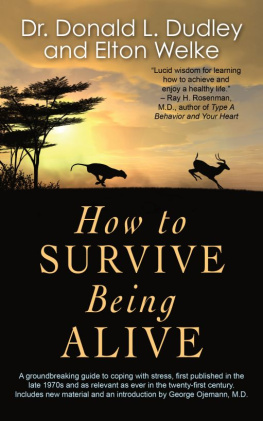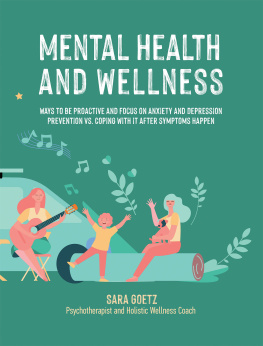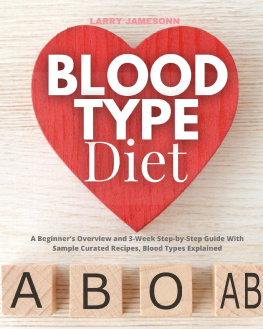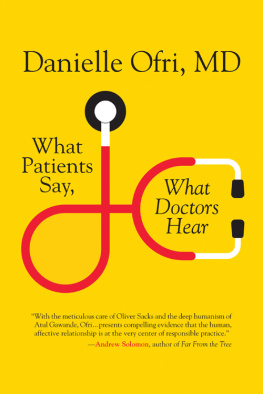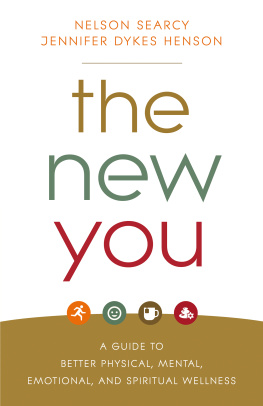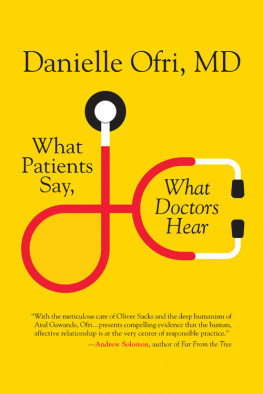How to Survive Being Alive
by
Donald L. Dudley, MD
and
Elton Welke
Coffeetown Press
PO Box 70515
Seattle, WA 98127
For more information go to: www.coffeetownpress.com
All rights reserved. No part of this book may be reproduced or transmitted in any form or by any means, electronic or mechanical, including photocopying, recording, or any information storage and retrieval system, without permission in writing from the publisher.
The ideas, procedures, and suggestions contained in this book are not intended as a substitute for consulting with your physician. All matters regarding your health require medical supervision.
Cover design by Sabrina Sun
How to Survive Being Alive
Copyright 1977 and 2014 by Donald L. Dudley, MD and Elton Welke
Originally published by Doubleday and Company, Inc.
ISBN: 978-1-60381-160-6 (Trade Paper)
ISBN: 978-1-60381-161-3 (eBook)
Library of Congress Control Number: 2013957517
Pr oduced in the United States of America
Acknowledgment is gratefully extended to the following for permission to reprint from their works:
Old Friends 1968 Paul Simon. Used by permission.
Hello in There by John Prine 1971 Cotillion Music, Inc. and Sour Grapes Music. All rights reserved. Used by permission.
Give Your Heart to the Hawks 1973 Winfred Blevins, by permission of Nash Publishing Corporation.
* * *
T o Thomas H. Holmes, M.D.,
teacher and scholar
* * *
Introduction
D on Dudley and I met in 1964. Don was in his final year of medical school at the University of Washington, and I had just transferred to the Seattle editorial office of Sunset Magazine. As accidental neighbors , we discovered a mutual passion for trout fishing and wilderness backpacking . So began a friendship and professional collaboration that lasted until Dons death in 2000.
How to Survive Being Alive grew out of our conviction that a broad public would be interested in, and could constructively employ, some of the astonishing research emerging from psycho-social medicine, the field in which Don and some of his colleagues were immersed at the University of Washington Medical School. The most celebrated of these psycho-physiologists were Thomas H. Holmes and Richard H. Rahe, a neuropsychiatric researcher with the U.S. Navy . Together they created the Social Readjustment Rating Scale, a brilliant predictor for illness among the general population.
Our notion was eventually supported by Luther Nichols, the erudite West Coast acquisitions editor for Doubleday at the time, and by Doubledays storied editor-in-chief , Betty Prashker. Between 1972 and 1976 , we digested a library of books about stress, boxes full of research papers, magazine articles, and newspaper clippings, and conducted several dozen interviews with scientists, clinicians, and patients. Ironically , during this period Don and I would experience our own major life changes. Don left the University of Washington Medical School faculty for a while to serve in the U.S. Navy Medical Corp , then returned to the university as Professor of Psychiatry and Behavioral Sciences. I left the position of Managing Editor, Apartment Life Magazine (which became Metropolitan Home) at Meredith Corporation in Des Moines, Iowa , to rejoin Lane Publishing Company in California as Executive Editor of Sunset Special Interest Magazines. Through all this change, our correspondence and phone conferences continued. What I now find most amazing is that we worked without word processors, a World Wide Web, email, or digitalization of any kind. All our notes, drafts, and final manuscript were written by hand and on a Hermes portable typewriter with an annoying ly sticky F key. In an effort to publish a slim volume for the widest possible audience, we saw mountains of paper litter the cutting-room floor before the books original publication by Doubleday and Company in 1977.
Upon release, How to Survive Being Alive made bestseller lists in our home towns, Seattle and Palo Alto, and was excerpted in newspapers throughout the country. It enjoyed reasonable sales nationwide and was published in a mass-market edition by New American Library in 1978.
Especially heartening and unexpected was how well the book was reviewed within the professional medical community. We had anticipated some skepticism by physicians un familiar with psycho-social medical research ; instead we received much positive feedback. One professor of medicine on the Stanford Medical School faculty said of the book, I know much of this. Anyone who has worked in clinical medicine as long as I have knows much of this. Now heres the supporting evidence. We received many similar comments from clinical physicians and nurses.
Don Dudley, MD , was known to many patients as the best doctor I ever had . His broad interdisciplinary methodologies sometimes made him a clinician of last resort. His record of diagnosing and treating difficult, elusive illnesses was legendary. He was truly dedicated to treating the whole man, and he had a near-fathomless ability to absorb and apply medical research for the benefit of individual patients. Of this ability, he was understandably proud. Among the comments, reviews, and accolades How to Survive Being Alive received upon publication was one that was especially appreciated by Dr. Dudley. It was a short note from Dr. Hans Selye, arguably the father of modern stress theory:
I think Dr. Donald Dudley and Elton Welke have succeeded remarkably well in extracting the most important data from the stress literature which has grown to some 120,000 references accumulated in our Library since I wrote my first paper on the subject in 1946. Having devoted all my life to this complex topic , I realize how difficult it is to select what really is practical use in daily life in a light and amusing style . Despite the many books that attempted to do the same (including my own), I am convinced that this volume is among the best and will be of value to a large public and receive the enthusiastic reception it so well deserves.
Hans Selye, M.D, Ph.D., D.Sc.
President
Institut International Du Stress
Montreal, Canada
Regarding this republication of How to Survive Being Alive if Don Dudley were here today , I know he would join me in expressing sincerest thanks to Catherine Treadgold, publisher of Coffeetown Press, to Drs. George and Linda Ojemann for their warm friendship and keen medical acumen, and to Irene Dudley and Anna Welke for having loyally tolerated so many years of research mayhem and editorial clutter, along with kitchen sinks full of trout from time to time.
Elton Welke
Kirkland, WA
Foreword
T he late Dr. Donald Dudley, my longtime friend and sometime colleague in the care of patients with epilepsy , was a member of the first generation of psychiatrists trained predominately by members of that profession who had broken down the brain-mind dichotomy. They were interested in the relation between patients psychological states and physiology, particularly brain physiology, interests that took several formsincluding the development of therapies for major psychiatric disorders based on altering brain physiologyand the effects of psychological states on medical diseases.
The early work in this latter area emphasized the role of stress, an idea that originated in the mid - 1850s, particularly in the writings of Claude Bernard, but did not generate widespread interest until a hundred years later with the work of Hans Selye. Dr. Dudleys earliest work concerned psychological effects on chronic lung diseases , including shortness of breath, emphysema and asthma. Some of these studies were undertaken with one of his teachers, Dr. Thomas H. Holmes. They identified stress associated with life changing events as one of the psychological factors influencing response to respiratory diseases. To further study this relationship, Dr. Holmeswith his colleague Dr. Richard Rahedeveloped scales of life changing events , culminating in the Social Readjustment Rating Scale (SRRS) of this book. T hey then developed evidence supporting the hypothesis that a high level of life change over a short period of time initiates illness, with greater life change associated with more serious illness.

